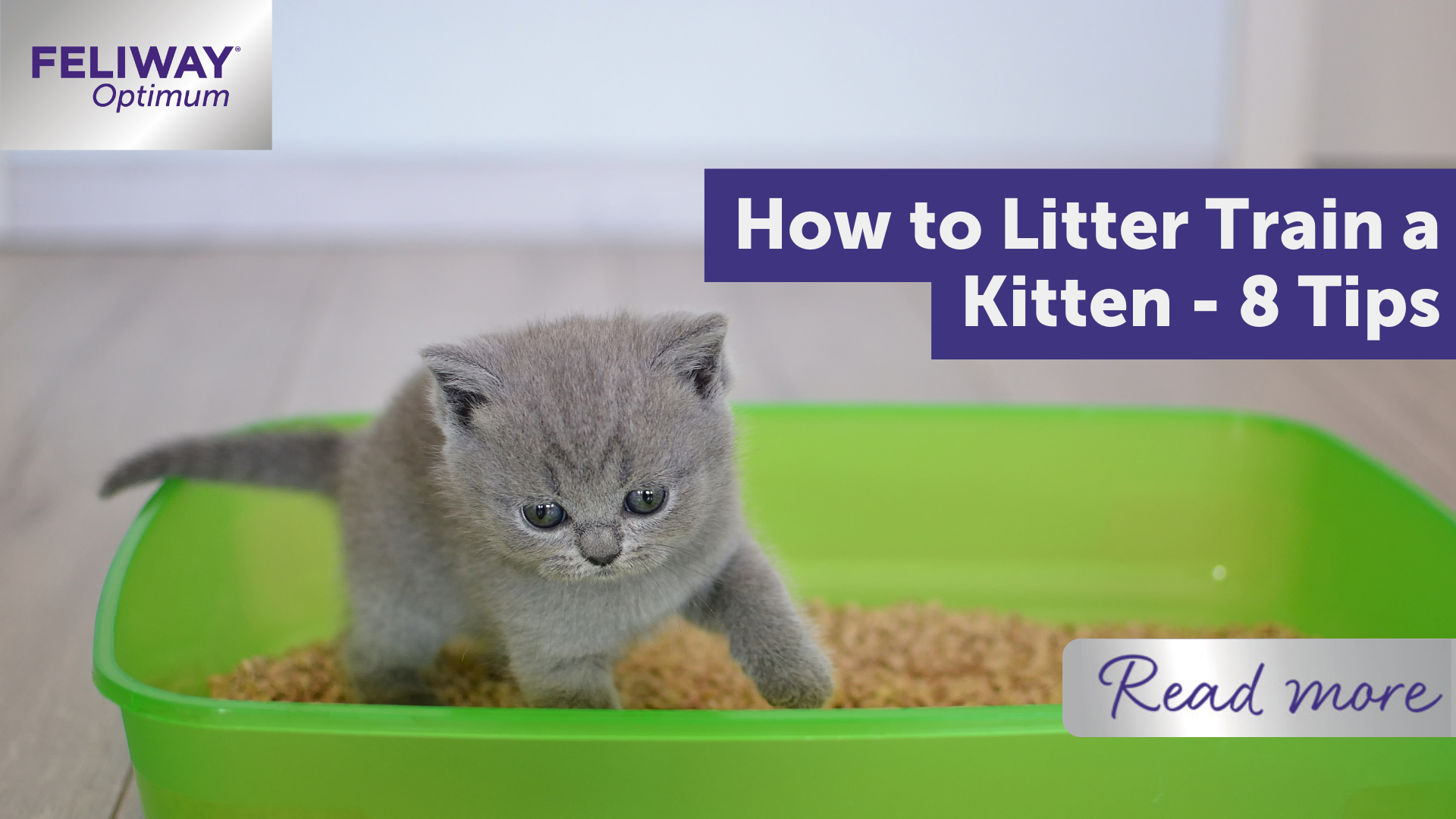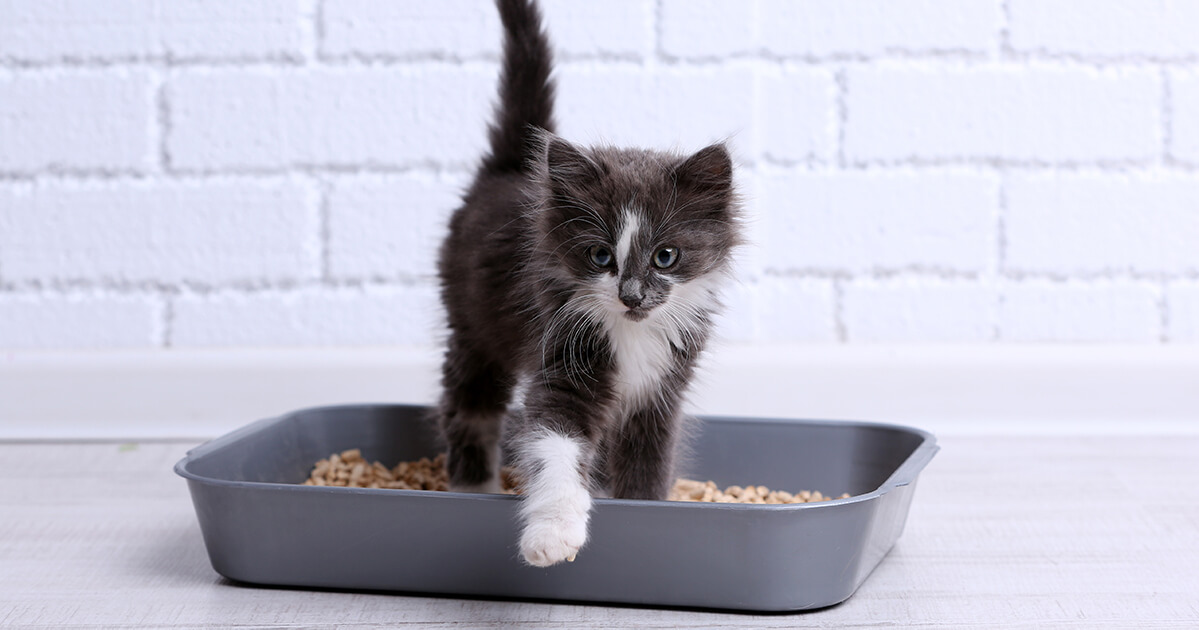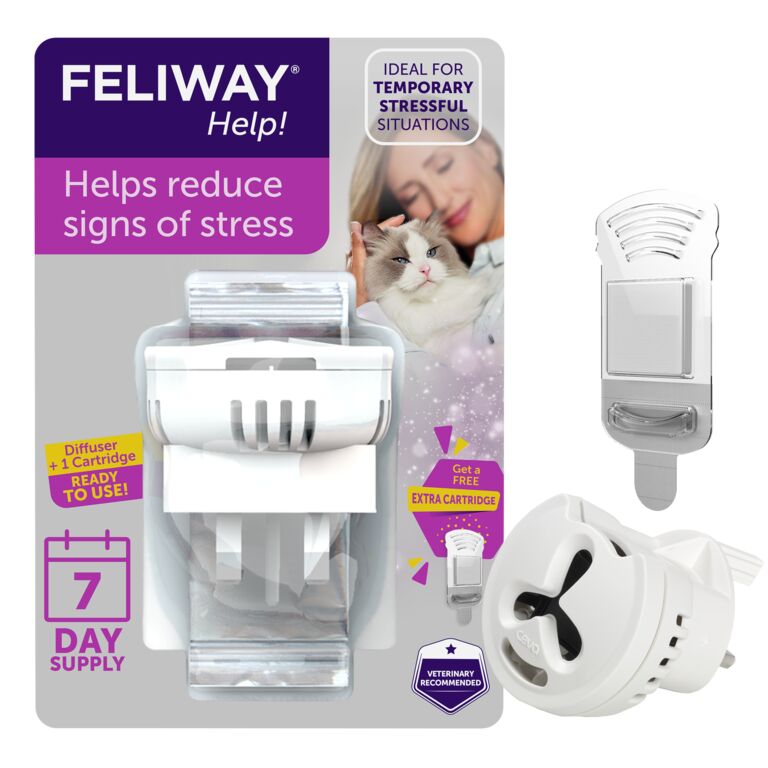
How to Litter Train a Kitten - 8 Tips
Excitement, chaos and delight will reign when you bring your new kitten home for the first time!
But while bringing a new kitten home is very exciting, there are lots of practical, everyday things to consider for your kitty to be happy in your home. One of the most important of these is litter training.
It's important to ensure you're ready and prepared with all the right equipment and items that kittens need before you bring your them home. One of these is of course kitty litter and a litter tray - don't wait until accidents happen as this will not get you or your kitty off to a good start!
The following tips will ensure you are ahead of the game, with everything you need to consider to help your new kitty know where and how to do their business!
1. Use kitty instincts!
It's a natural instinct for cats and kittens to perform their toilet activities in litter type material, so if you introduce the litter tray as soon as they arrive home, they will instinctively start to use it in no time. You won't have to teach them what to do - just make sure they know where it is and their feline instincts will kick in!
Kittens and cats also like to bury their poop - another instinct that helps them mark their territory - so it's important that you get the right litter box for them.
2. Find the right litter box
Toilet comfort is essential! Your kitten will soon grow into a cat, so choose a large litter box that they can grow into. But make sure that your kitty has easy access, and can easily step in while they are small.
A good option is a litter box with sides, or with a roof. These have many benefits, including:
- Less mess! Because kitties like to burying their poop, the action of kicking litter or sand over could create a little extra mess outside the tray - best avoided with a cover, taller sides or a large box!
- Privacy! Cats are private animals, and may like to have some privacy when performing. A litter box will give them this privacy.
- Odour control! Although there are many types of cat litter that can absorb unpleasant smells, a litter box will give that little bit more protection against unwanted odours, particularly if you are not able to change the litter very frequently.
If your kitty shows signs of nervousness when you introduce them to the litter box, giving them a treat each time they enter will soon encourage your pet to feel comfortable and continue using it. If you have a litter box with a cover, you should be able to remove the sides, roof or door until they get acclimatised. You can gradually rebuild it into a box, bit by bit, as your kitty uses it more regularly.
Remember, if you have more than one cat, you must provide each one with their own resources, including litter trays plus one spare so that they have more choice - cats don't like sharing toilets!
3. Consider litter box position
Like humans, cats like to have a little privacy when they are 'performing', so make sure the litter tray is in a quiet location and away from a high traffic area. In a corner, or somewhere a bit hidden.
Make sure the tray is always accessible and not behind closed doors, or beside anything noisy like a washing machine - which might scare them.
Keep the litter tray well away from your cat's food and drink too! After all, we humans wouldn't have our meals in the loo - and cat's don't like it either!

4. Reward and praise your pet
A little treat will go a long way. When you introduce your kitty to their new litter tray, you may need to encourage them to go in. You can do this by play - perhaps dangling a toy that they like to chase - so that they will associate the tray with a good experience.
Always praise them for going into the litter tray, reward them verbally and give them treats, particularly when they finally use it as their toilet.
5. Choose the Right Cat Litter
There are many types of cat litter available, but there are some important points you need to consider before you buy:
- Get dust-free cat litter. The dust from some litter can irritate cats' lungs.
- Kittens may try and eat the litter, so make sure you avoid clumping litter, as this can cause complications if eaten.
- As tempting as it might be, avoid scented litter. Cats in general do not like anything with a strong smell; they can find it overpowering and it may even cause nose, or eye irritation. It could even cause them to go elsewhere in the house to perform!
- Ensure you can scoop the litter up easily and put it straight into a disposable bag without it spilling out.
- As cats are creatures of habit, don't change the type of litter you use too much. Make sure that the one you choose is in plenty supply and easy to get hold of.
Cats have high standards, so remember to scoop the litter box daily and clean it regularly, otherwise your kitty will avoid the tray and go elsewhere.
6. Keep new kitties confined for a little while
When you bring a new kitten home for the first time, they will likely be a bit overwhelmed. There will be lots of new things, new people, new smells and it's often best if they adjust gradually to their new surroundings. So, to start with, consider limiting their access to just a couple of rooms and keep their litter tray within this space - still of course, in a discreet and private place to make them feel comfortable and safe.
7. There will be accidents!
Accidents will happen! if your kitten doesn't get to grips with the litter tray immediately, or sprays somewhere else around the home, then you must try and clean it thoroughly to stop them from returning to the same spot again. The scent is a strong territorial signal, and is how cats mark their space, so it's important to remove misplaced messes!
However, be careful not to use bleach or any ammonia-based products as it reminds cats of their urine smell and they will spray there again! Only use an enzymatic wash or warm water and soap - as this breaks down kitty urine, and makes sure all traces of the scent and pheromones are completely gone.
8. Check your kitty's health if you have concerns!
If you are worried that your kitten isn't getting to grips with the litter tray as quickly as you would expect, or they are spraying outside the box, it may be best to get them checked out by your vet, to discount any underlying problems.
When you are happy that there's nothing to worry about, persevere and kitty will soon be using the litter tray on their own!
HELP YOUR KITTY FEEL COMFORTABLE
Consider the use of a FELIWAY CLASSIC Spray to stop kitten spraying. FELIWAY CLASSIC is clinically proven to help reduce spraying and you should see an improvement within the first week. Continue to use for at least one month. Spray FELIWAY CLASSIC Spray in the single area on the mark after cleaning, and spray there daily.
To create a comforting environment for your kitten around the house plug in FELIWAY Optimum Diffuser which will help your kitten adjust to their new life with you, feel reassured and safe with the comforting messages being diffused around their new home.
Are you interested in learning more about cats and their curious qualities? Get in touch! We could talk about our feline friends all day. You can also stay up to date with all the latest updates from FELIWAY by signing up to our newsletter.




































